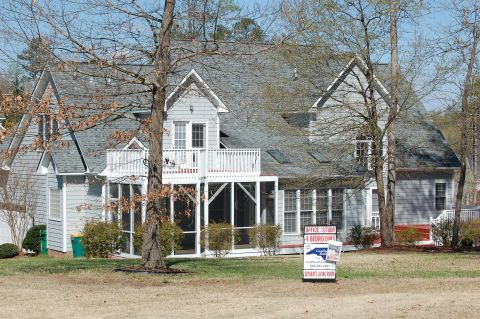The cover story in the new issue of Fortune magazine is not about the economic fallout from the Japan tsunami and nuclear reactor problems, nor is it about the impact on oil prices of the military operations in Libya or the clashes between citizens and their rulers in the Middle East. No, the cover story of the new Fortune magazine reads "The Return of Real Estate." And the subhead gives a good indication of just how bullish the magazine's editors are about the future of properties: "Forget stocks. Don't bet on gold. After four years of plunging home prices, the most attractive asset class in America is housing."
I am traveling and have not picked up a copy of the magazine yet but will do so this weekend and offer some additional thoughts in this space. One word of caution: When the major media starts talking about a turnaround, the turnaround probably has already started. I started seeing the signs of a comeback late last year in the requests from readers for assistance in finding a golf community home; and developers have been telling me that traffic started picking up for them in January, traditionally a slow month for visits.
I note in my recent visits to golf communities that extreme values must be generating a lot of the renewed interest, and I expect Fortune will make a point about low prices. Over the past three days, I visited

The 3,800 square foot home for sale adjacent to the Neuse Golf Club listed for just under $360,000.
At the gated semi-private National Golf Club community in golf mad Pinehurst, the developers have sold out 80% of the "fractional" shares in golf cottages behind the 6th tee of the excellent Jack Nicklaus course. I stayed in one of the beautifully outfitted four-bedroom units where a four-week per year share starts just shy of $100,000, with lots of choices for the specific weeks. Two-bedroom units begin around $84,000. The fractions are owned forever and can be willed to heirs or sold just like a home. For families within driving distance of Pinehurst especially, they are interesting alternatives to owning outright a lightly used second home.
At Uwharrie Point, prices are generally a little higher for single-family homes, but some "patio-style" homes on 1/5th acre lots start in the $200s. The adjacent Badin Lake is everpresent throughout the community and especially on the golf course, where original developers Dominion Resources were totally selfless in turning over prime real estate to Tom Fazio for the design of one of the top three golf courses in the state, according to the North Carolina Golf Rating Panel. The McConnell Group bought the Old North State Club from Dominion in 2009, and members of Old North State now have access to McConnell's Carolinas portfolio of top-notch courses, including the recently added Donald Ross designed Sedgefield Country Club course in Greensboro.
Variety and low prices abound...for now. Fortune may have it right. If you want more information on these or any other golf communities in the southern U.S., please contact me.

The 5th hole at National Golf Club, where single-family homes generally sell in the mid-six figures, but a four-week "fractional" share of a well-appointed golf cottage can be purchased for less than $100,000. Jack Nicklaus designed the golf course.
























